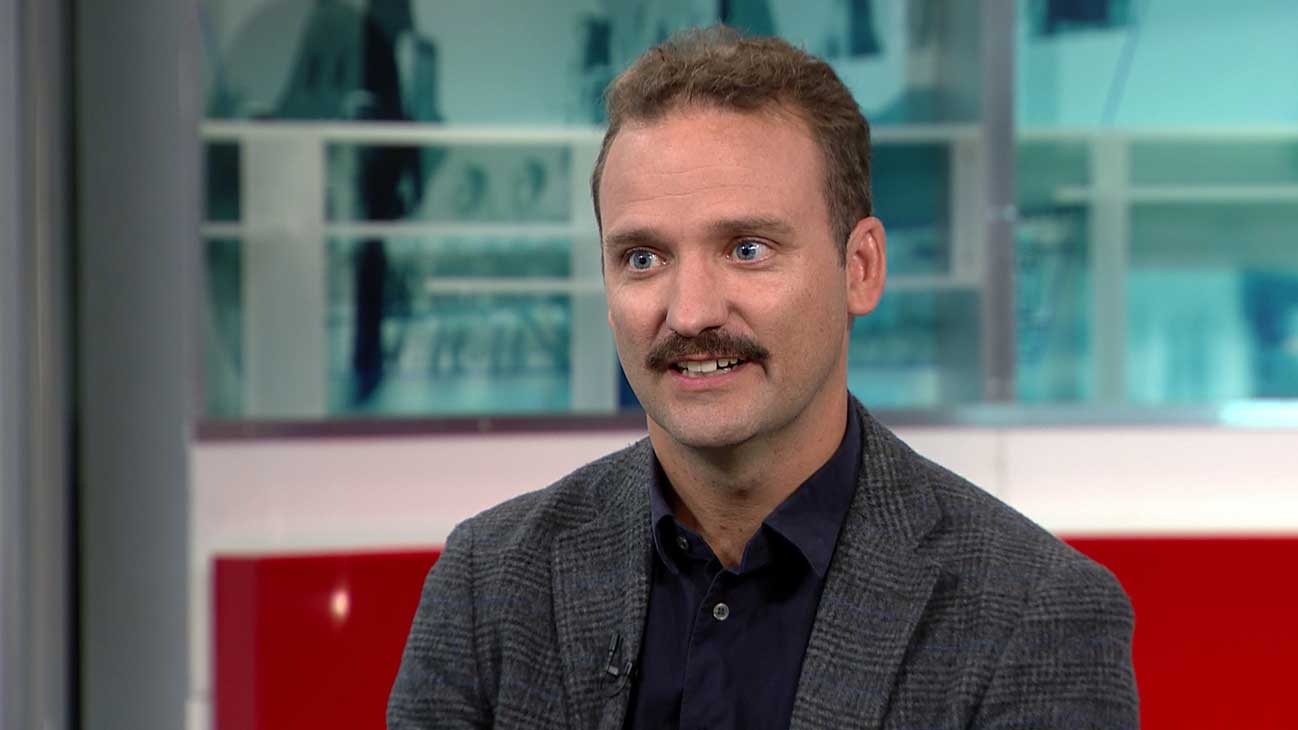Documentary filmmaker and freelance journalist, Alexandre Trudeau shares his bold views on the political, social, and economic forces of our times. Having gained widespread recognition for his edgy and insightful humanism and for his brave iconoclasm and fierce dedication to social justice, Alexandre doesn’t fit into any boxes and never fails to surprise, provoke and inspire. Alexandre’s new book, Barbarian Lost, hits store shelves today — he talked to CBC’s Power and Politics about what inspired him to write it, yesterday. Read below and watch the interview here.
Prime Minister Justin Trudeau’s brother Alexandre says Canada has lost its unique voice in the world and fallen into the role of a “confused follower nation” — but building a unique relationship with China could help fix that.
Alexandre made the comments in an interview with CBC News Network’sPower & Politics, where he was promoting his book Barbarian Lost: Travels in the New China.
“In recent times Canada has disappeared as an independent voice, as a country that makes its own decisions about things,” Alexandre told host Rosemary Barton. “When’s the last time you think: ‘Well, Canada really has a position that is unlike any other?’ We’ve kind of fallen into a confused follower nation.”
The author and filmmaker said Canada should be surprising other countries with “authentically unique” positions on issues of international importance.
“It’s a constant challenge when we are so closely linked with the United States, obviously, they expect us to toe the line on so many issues, but it’s not even good for them that we be so close to them,” he said. “We have to be independent, and developing an independently sophisticated relationship with China is one of the big features of that.”
Alexandre said his brother’s job is difficult when it comes to China, because Canada is a trading nation and his brother is the “salesman in chief” of a country where many citizens are uncomfortable with the human rights record of the Chinese government.
“I’m not one who believes that trade should be politicized like that,” he said. “I think the way to go at human rights is to say China has to evolve, we want to be a long-term friend to China and be helpful as it evolves, and we have a lot to learn from them too. Not just Canada but the West in general.”
While the rest of the world has been significantly influenced by European expansion over the last five or six centuries, Alexandre said, China is a place apart, a country where travellers can look at the West from the outside like nowhere else.
One of the lessons there is the way Chinese culture puts a strong emphasis on family history and how that family is put above the individual.
“What could be more true, that the only thing really real about us in the long run, is what we manage to receive from those who came before, and what we manage to pass on to those who follow,” he said.
Remembering the China of his youth
As children, Alexandre and his brothers Justin and Michel travelled in China with their father. Alexandre related a story he mentions in the book in which the elder Trudeau chastised his sons for behaving like “barbarians” at some of China’s most sacred sites.
“My brother and I, when we get together, we’re just like the young lions we were — one missing obviously — we’re boxing and pushing and throwing our kids around, we were rambunctious, still are,” he said
“My father mostly encouraged that, but at certain times he had a sense — ‘this is kind of a sacred place for people and here are my boys just bouncing off the walls behaving.’
“We ended up injuring ourselves and we were sort of crippled the next day, and he was like: ‘You guys are ridiculous. Stop behaving like barbarians. The Chinese see us as barbarians; often, you’re giving them reason to do that.’
“Hence the title,” Alexandre said of why he chose the name for his book.

